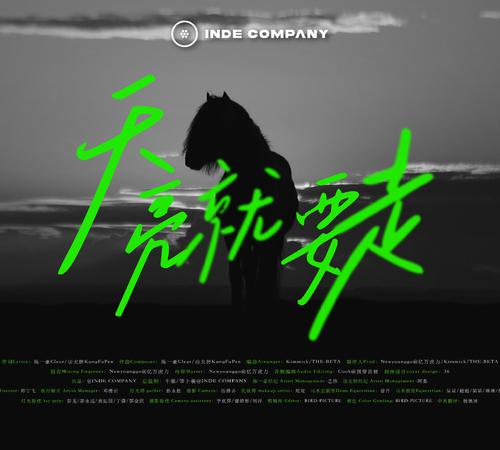
200220|你能放弃快速时尚吗?(angela1ee)
感谢听友 @FeiYu_ 指正,fast fashion是快速时尚,百度词条:“快速时尚”源自于20世纪中叶的欧洲,本是对服装秀场设计的快速回馈和模仿。随着服装设计和终端销售的日益密切,时至20世纪末到21世纪初,“快速时尚”被演变成为时尚服饰企业对秀场的时尚设计快速反应,并制成紧贴最新时装潮流的产品,以低廉的价格流入卖场,主攻主流消费者的一种销售模式。 快消是Fast moving consumer goods,简称FMCG Transcript Note: This is not a word-for-word transcript Georgina Hello. This is 6 Minute English from BBC Learning English. I'm Georgina… Neil And I'm Neil. Georgina In this programme, we’re talking about buying clothes and only wearing them a few times before buying more clothes! Neil This is something known as fast fashion – it’s popular, it might make us feel good, but it’s not great for the environment. Georgina Which is why lots of people this year are pledging – or promising publicly - to buy no new clothes. Neil I for one am wearing the same shirt I bought seven years ago. Georgina You’re certainly not a fashion victim, Neil! But first, let’s test your knowledge of fast fashion with a question. Do you know how many items of clothing were sent to landfill in the UK in 2017? Was it… a) 23 million items, b) 234 million items or c) 2.3 billion items What do you think, Neil? Neil I’m sure it’s lots, but not billions, so I’m going to say 23 million items. Georgina I shall tell you if you’re right at the end of the programme. Let’s talk more about fast fashion, which is being blamed for contributing to global warming. Neil And discarded clothes – that means ones that are thrown away - are also piling up in landfill sites, and fibre fragments are flowing into the sea when clothes are washed. Georgina It’s not great – and I’ve heard the average time someone wears something is just seven! So why is this, and what is driving our desire to keep buying more clothes? Neil I think we should hear from fashion journalist Lauren Bravo, who’s been speaking on the BBC Radio 4 programme, You and Yours. She explained that clothes today are relatively cheaper than those from her parents’ days… Lauren Bravo, fashion journalist A lot of clothing production got outsourced - offshored over to the developing world, so countries like Indonesia, India, Bangladesh and China are now responsible for making the vast bulk of all the clothes that are sold in the UK. And with that, we've seen what we call ‘chasing the cheapest needle’ around the world, so the fashion industry constantly looking to undercut competitors, and with that clothes getting cheaper and cheaper and cheaper. Georgina Right, so clothes – in the developed world at least – have become cheaper because they are produced in developing countries. These are countries which are trying to become more advanced economically and socially. Neil So production is outsourced – that means work usually done in one company is given to another company to do, often because that company has the skills to do it. And in the case of fashion production, it can be done cheaper by another company based in a developing country. Georgina Lauren used an interesting expression ‘chasing the cheapest needle’ – so the fashion industry is always looking to find the company which can make clothes cheaper – a company that can undercut another one means they can do the same job cheaper. Neil Therefore the price of clothes gets cheaper for us. Georgina OK, so it might be good to be able to buy cheaper clothes. But why do we have to buy more – and only wear items a few times? Neil It’s all about our obsession with shopping and fashion. It’s something Lauren Bravo goes on to explain on the You and Yours radio programme. See if you can hear what she blames for this obsession… Lauren Bravo, fashion journalist Buying new things has almost become a trend in itself for certain generations. I think that feeling that you can't be seen in the same thing twice, it really stems from social media, particularly. And quite often people are buying those outfits to take a photo to put on Instagram. It sounds illogical, but I think when all of your friends are doing it there is this invisible pressure there. Georgina Lauren makes some interesting points. Firstly, for some generations, there is just a trend for buying things. Neil It does seem very wasteful, but, as Lauren says, some people don’t like to be seen wearing the same thing twice. And this idea is caused by social media – she uses the expression ‘stems from’. Georgina She describes the social pressure of needing to be seen wearing new clothes on Instagram. And the availability of cheap clothes means it’s possible to post new images of yourself wearing new clothes very regularly. Neil Hmm, it sounds very wasteful and to me, illogical – not reasonable or sensible and more driven by emotions rather than any practical reason. Georgina But, there is a bit of a backlash now – that’s a strong negative reaction to what is happening. Some people are now promising to buy second-hand clothes, or ‘vintage clothes’, or make do with the clothes they have and mend the ones they need. It could be the start of a new fashion trend. Neil Yes, and for once, I will be on trend! And it could reduce the amount of clothes sent to landfill that you mentioned earlier. Georgina Yes, I asked if you knew how many items of clothing were sent to landfill in the UK in 2017? Was it… a) 23 million items, b) 234 million items or c) 2.3 billion items What did you say, Neil? Neil I said a) 23 million items. Georgina And you were wrong. It’s actually 234 million items – that’s according to the Enviro Audit Committee. It also found that 1.2 billion tonnes of carbon emissions is released by the global fashion industry. Neil Well, we’re clearly throwing away too many clothes but perhaps we can recycle some of the vocabulary we’ve mentioned today? Georgina I think we can, starting with pledging - that means publicly promising to do something. You can make a pledge to do something. Neil When something is outsourced,it is given to another company to do, often because that company has the skills to do it or it can be done cheaper. Georgina And if one company undercuts another, it charges less to do a job than its competitor. Neil The expression stems from means ‘is caused by’ or ‘a result of’. We mentioned that rise in fast fashion stems from sharing images on Instagram. Georgina And we mentioned this being illogical. So it seems unreasonable - not sensible, and more driven by emotions rather than any practical reason. Neil And a backlash is a strong negative reaction to what is happening. Georgina And that brings us to the end of our discussion about fast fashion! Please join us again next time. Bye. Neil Bye. Link: http://www.bbc.co.uk/learningenglish/english/features/6-minute-english/ep-200220











